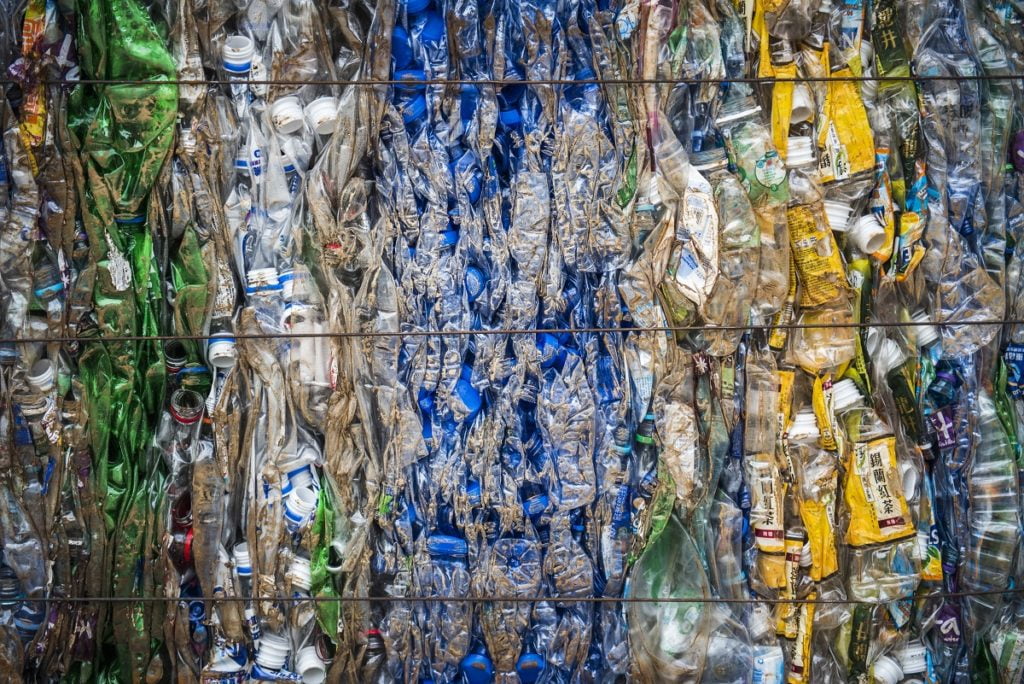The introduction of the plastic tax in the UK has set the stage for businesses in the automotive and manufacturing sectors to reevaluate their material usage and waste management practices and close resource loops.
The Plastic Tax aims to encourage the use of recycled materials and reduce the environmental impact of plastic waste. Companies must now meet the stipulated minimum recycled content threshold in their plastic products to comply with regulations and avoid penalties.
This emerging legislation has spurred businesses to seek reliable, sustainable solutions, such as the reprocessing services provided by Pulse Plastics.
Pulse Plastics, an innovative UK-based independent specialist plastic solution provider, offers a comprehensive suite of reprocessing services to help companies within the automotive and manufacturing sectors effectively achieve compliance with the Plastic Tax requirements.
By partnering with Pulse Plastics, businesses can secure valuable cost savings by claiming tax back and optimising resource usage to promote ecological sustainability.
Engaging with an experienced, reputable partner like Pulse Plastics is vital to navigating the challenges of the Plastic Tax and achieving compliance through innovative, eco-conscious, and cost-effective solutions.
1. Understanding the Plastic Tax: Compliance and Impact on Businesses
Before diving into the benefits of Pulse Plastics’s reprocessing services, it’s crucial to gain a clear understanding of the Plastic Tax, its compliance requirements, and the implications for businesses in the automotive and manufacturing sectors:
- Minimum Recycled Content: The central requirement of the Plastic Tax is to achieve a specified minimum threshold of recycled content in plastic packaging and products, incentivising the use of reprocessed materials and promoting a circular economy.
- Financial Implications: Failure to comply with the Plastic Tax and its regulations can result in significant financial penalties for businesses. On the other hand, meeting compliance requirements can lead to cost savings by allowing businesses to claim tax back when using reprocessing services.
- ESG Considerations: In today’s world, environmental, social, and governance (ESG) factors play an essential role in shaping businesses’ reputation and investment potential. Compliance with the Plastic Tax is integral to a company’s ESG performance, ultimately impacting their long-term sustainability and success.
2. Pulse Plastics’s Reprocessing Services: Streamlined Solutions for Compliance and Sustainability
Pulse Plastics offers various reprocessing services to help businesses comply with the Plastic Tax and foster a more sustainable resource usage approach. These services include the following:
- Efficient Reprocessing: Pulse Plastics can convert waste plastic into high-quality reprocessed materials suitable for various automotive and manufacturing applications, ensuring you adhere to the Plastic Tax rules and requirements.
- Collaborative Partnerships: Pulse Plastics continually expands its network to partner with automotive and manufacturing businesses seeking to reprocess their plastic waste or utilise reprocessed materials to produce closed-loop products.
- Bespoke Solutions: Since no two businesses are alike, Pulse Plastics tailors its reprocessing services to suit each company’s unique operational requirements and sustainability goals.
3. Advantages of Integrating Reprocessed Materials and Pulse Plastics’s Reprocessing Services
Incorporating reprocessed materials into your automotive or manufacturing business’s operations and collaborating with Pulse Plastics can yield various benefits, including the following:
- Cost Savings: Utilising reprocessed materials allows your business to claim tax back, reducing overall production expenses and alleviating the financial impact of the Plastic Tax.
- Reduced Environmental Footprint: By integrating reprocessed materials, your business can minimise its dependency on virgin resources, leading to a smaller environmental footprint and a more sustainable production cycle.
- Enhanced ESG Performance: Adopting reprocessing services and practices can elevate your business’s ESG performance, positioning your company as a responsible, forward-thinking leader.
- Brand Image and Reputation: Proactively aligning with the Plastic Tax’s objectives and prioritising sustainability initiatives positively reflects your brand’s image, creating trust and loyalty among your customer base.
4. Practical Steps to Utilise Pulse Plastics’s Reprocessing Services and Ensure Compliance
Following these strategic steps can help your business effectively implement Pulse Plastics’s reprocessing services and navigate the Plastic Tax with confidence:
- Evaluate Current Practices: Assess your plastic usage and waste management strategies to identify opportunities for integrating reprocessed materials and reducing environmental impact.
- Set Clear Objectives: Establish realistic, measurable objectives for incorporating reprocessed materials into your operations, ensuring compliance with the Plastic Tax and alignment with your overall sustainability targets.
- Engage with Pulse Plastics: Consult with Pulse Plastics to develop a customised reprocessing solution tailored to your business’s unique needs, ensuring a seamless transition towards leveraging reprocessed materials.
- Educate and Train Staff: Ensure your employees understand the importance of Plastic Tax compliance and the benefits of reprocessed materials, equipping them with the necessary skills to support these changes within your operations.
- Monitor and Adjust: Regularly review and refine your integration of reprocessed materials, making necessary adjustments to stay compliant with the Plastic Tax and continuously optimise your business’s sustainability efforts.
Conclusion
The Plastic Tax has undeniably catalysed change in the automotive and manufacturing industries, highlighting the need for businesses to optimise their resource use, reduce waste, and embrace sustainable practices.
By making the conscientious decision to integrate reprocessed materials into your operations, your business can comply with the Plastic Tax and elevate its reputation, ESG performance, and position within the industry as an eco-conscious leader.
Partnering with Pulse Plastics for tailored plastic reprocessing services is a strategic move towards achieving compliance with the Plastic Tax, securing cost savings, and fostering long-term ecological sustainability. Contact us today to learn more.


